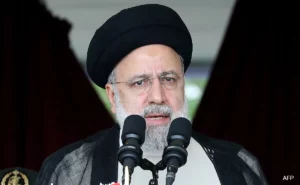Assassination Attempt on Trump Shakes Nation, Heightens Security Concerns Ahead of GOP Convention

The recent assassination attempt on former President Donald Trump at a rally in Pennsylvania has sent shockwaves through the country, raising urgent questions about political violence and security measures ahead of the upcoming Republican National Convention.
The Tragic Incident
The attack unfolded on a scorching weekend evening in Butler, Pennsylvania, where Trump was addressing a crowd of enthusiastic supporters. Amidst the rally’s enthusiasm, a 20-year-old man named Thomas Matthew Crooks was spotted climbing a nearby building, prompting a swift response from the Secret Service.
Crooks, a registered Republican with no clear ideological affiliations, opened fire with an AR-style rifle, grazing Trump’s ear with a bullet. In the ensuing chaos, a former fire chief named Corey Comperatore heroically shielded his family, sacrificing his own life. Two other individuals were also injured and remain in critical but stable condition.
Investigators are currently working to unravel the mystery behind Crooks’ motives, as no clear ideological motivation has emerged thus far. The FBI has indicated that Crooks likely acted alone, with no incriminating online posts or affiliations to shed light on his intentions. Snippets from Crooks’ past suggest a troubled school life marked by bullying and isolation, but his employment as a dietary aide at a nursing home has raised further questions about his state of mind. The discovery of makeshift explosive materials in his possession has added a layer of complexity to the investigation, with officials describing the devices as basic.
The incident has sparked intense scrutiny of the security breach that allowed the gunman to approach Trump, with the FBI’s classification of the event as a potential act of domestic terrorism heightening concerns. As the Republican National Convention in Milwaukee approaches, party officials have vowed to bolster security measures and maintain their schedule, despite the looming threat. In the aftermath, Trump and his supporters have demonstrated unity and resolve, echoing the defiant spirit that emerged in the wake of the harrowing assassination attempt. However, the tragedy has also reignited debates about the state of political discourse in the country, with calls for a return to civility and a reaffirmation of the values that define the United States.
President Joe Biden, in a rare moment of bipartisanship, condemned all political violence and called for unity, emphasizing that “disagreement is inevitable in American democracy” but “politics must never be a literal battlefield, or God forbid, a killing field.”
As the nation grapples with the aftermath of this tragic event, the upcoming Republican National Convention is poised to be a critical test of the country’s resilience and its ability to navigate the turbulent political landscape with wisdom and restraint.






